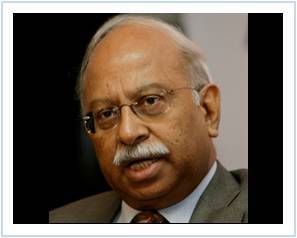AgVoice | Entrepreneurship and Angel Investing need encouragement in this budget: Indian Angel Network's Saurabh Srivastava
In India, Micro, Small and Medium Enterprises (MSMEs) constitute one of the most employment-intensive segments of the economy, contributing significantly to the manufacturing output and national exports.
It is estimated that this sector accounts for about 45% of the manufacturing output and 40% of the total exports of the country. There are several steps that the Government can take to encourage entrepreneurship and the growth of such ventures, especially by providing access to capital.
Globally, SMEs raise funds from "business angels" and then by seed or early stage venture funds before the general VC or PE Funds come in. Angel funds and venture capitalists are critical for the growth of MSMEs and the government needs to take some steps to enable the growth of both.
Business Angels in India are a new phenomenon and, therefore, need serious encouragement through the creation of an enabling policy environment that would also result in attracting more successful business people into becoming "Angel Investors'.
Business Angels are successful CEOs or entrepreneurs who have "been there, done that" and the presence of such groups is critical to the entrepreneurial ecosystem because in addition to the funds, they provide the SMEs with mentoring, advice, guidance and help in accessing markets and creating the right organizational structure.
Globally, Angels bring in risk capital, valuable advice, mentoring and provide access to their own powerful business networks. This often makes the difference between the success and failure of a SME.
So, for a thriving MSME sector we need to create a policy environment that would encourage the creation of more seed funds or early stage funds. This can be done by:
Getting higher equity participation to facilitate better debt-equity mix;
Entering into foreign technical collaborations for improving competitiveness.
In the past few years, there have been some attempts by the Government to promote flow of angel or venture capital funds to the MSME sector through Small Industries Development Bank of India (SIDBI).
Once the funds are set-up or for the funds already in existence, some broad policy issues need to be addressed, for channelizing risk capital to the MSME sector. Some of these issues are:
Change in bank lending norms for innovative start-up firms and introduction of new and innovative debt instruments that focus on the company's assets such as receivables and IP (as against other pure physical ones or personal guarantees).
Provide access debt funds even without a 3-year operating history of a company.
Ensuring better cycle time for loan processing.
Allowing domestic angel or venture capital funds in a Limited Liability Partnership (LLP) structure with a tax-pass through status.
Availability of above structure to business angel groups (say a business angel group with at least 75 investor members).
Providing a tax write off for individuals, up to a limit (Rs. 5 crores per annum), investing in MSMEs, either through an early stage fund (corpus up to Rs. 500 crore) or through a business angel group or individually.
Providing the same tax write off for individuals / business angel groups investing in SMEs spawned by the government's incubator system or coming out of the Incubators formed in the PPP model or IITs and other R&D Institutions.
The government could have a program on the lines of the highly successful Yozma scheme which was responsible for triggering off early stage funding in Israel, by using some public funds to create more early stage venture funds in the public private model. Similarly, some public funding could be used to help spawn more business angel groups in the country to complete the entrepreneurial ecosystem for nurturing SMEs.
Setting up of a separate SME Exchange or platform in an existing Stock Exchange to provide exit route to an angel or venture capital investor, along the lines of AIM, UK.
Allowing listing of angel/venture capital Funds on the existing Stock Exchanges. This is critical as such funds invest in a seed stage company which is unlikely to be able to go public or be large enough to be acquired in 3 to 5 years. However, the typical portfolio of 15 or 20 investee companies of such a fund would collectively have the required valuation net worth and listing the fund would provide a return to the investors thus encourage more such funds to come up.
Besides this there are non-financial issues like liability of an individual Director on the Boards of angel or venture capital Fund which need to be addressed.
*Saurabh Srivastava is Founder of Indian Angel Network, a group of nearly 150 investors focused on funding early stage investments. | By Saurabh Srivastava, Co-Founder of Indian Angel Network


















Share
Facebook
YouTube
Tweet
Twitter
LinkedIn